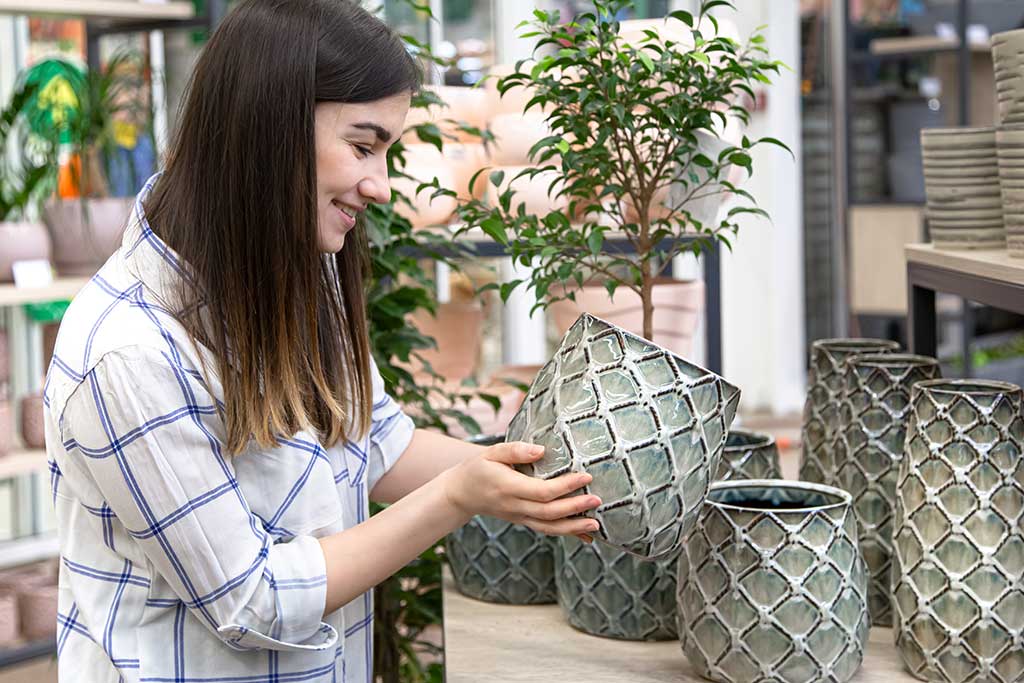Now Reading: Are Home Decor Stores Profitable? A Look Behind the Curtain
-
01
Are Home Decor Stores Profitable? A Look Behind the Curtain
Are Home Decor Stores Profitable? A Look Behind the Curtain

The world of home decor is a beautiful and inviting one. Walking into a store filled with cozy pillows, stylish lamps, and unique wall art can feel inspiring. For many people with a passion for design, the idea of turning that passion into a business by opening a home decor store is a wonderful dream. But a big question always comes to mind: Is this dream actually profitable? Can a home decor store be a successful business that makes good money? The answer is not a simple yes or no. A home decor store can be very profitable, but its success depends on several important factors. It is like planting a garden; with the right seeds, care, and location, it can flourish.
The Allure of the Home Decor Market
Why is the home decor business so attractive to begin with? The reason is that everyone needs a place to live, and most people want their home to be a comfortable and beautiful reflection of who they are. Our homes are our sanctuaries. This means the demand for home decor is always present. It is not a trend that will disappear. People are always looking for ways to refresh their spaces. Furthermore, social media and television shows about home improvement have made people more interested in interior design than ever before. They see new styles and ideas online and feel motivated to update their own homes. This creates a constant and growing customer base for home decor stores.
Understanding the Costs: Where the Money Goes
To understand profitability, we must first look at where a store owner’s money goes. The costs of running a home decor store can be significant. The first major cost is inventory. This is the stock of all the products you sell—furniture, vases, rugs, candles, and more. Buying this inventory from suppliers requires a large amount of money upfront. Then there is the cost of the store itself, the rent. A store in a nice, visible location with good foot traffic will have very high rent. If you choose a cheaper location, you may save money but get fewer customers walking in. Other costs include paying employees, electricity bills, insurance, and marketing to let people know your store exists. All these expenses must be covered by the sales you make before you can even start to see a profit.
Keys to a Profitable Home Decor Store
So, what separates a profitable home decor store from one that struggles? Successful stores often share a few common traits that help them stand out and make sales.
1. A Clear and Unique Identity
The most successful stores have a strong point of view. They are not trying to sell everything to everyone. Instead, they focus on a specific style. For example, a store might specialize only in modern farmhouse decor, or in vintage and rustic items, or in eco-friendly and sustainable products. This helps them attract a specific group of customers who love that particular style. When a store has a clear identity, it becomes a destination for people looking for that unique look.
2. The Power of Curation
Customers do not just come to a home decor store to buy things; they come for ideas. A profitable store acts as a curator, not just a warehouse. This means the owner carefully selects items that go well together and arranges them in beautiful displays, like setting up a model living room or bedroom. This helps customers imagine how the products would look in their own home. When a customer sees a beautifully arranged table setting, they are more likely to buy the entire set—the plates, glasses, and table linens—rather than just one item. This is how curation increases sales.
3. Balancing Quality and Price
Getting the pricing right is a delicate art. A store cannot be the cheapest option, because quality home decor items have a cost. However, it cannot be so expensive that it drives away all its customers. Profitable stores find a balance. They offer products at different price points. They might have some affordable, impulse-buy items like scented candles or decorative mugs, alongside a few higher-priced, statement pieces like a unique chair or a large painting. This mix ensures that every customer, no matter their budget, can find something to buy.
4. Embracing the Online World
In today’s world, a physical store alone is often not enough. A strong online presence is no longer optional; it is essential for profitability. This does not just mean having a website. It means having an online store where people can browse and purchase your products from the comfort of their home. It also means being active on social media platforms like Instagram and Pinterest, which are perfect for showcasing beautiful home decor photos. An online presence allows a small store in one town to reach customers across the entire country.
The Challenges: Why Some Stores Struggle
The path to profitability is not always smooth. There are several common challenges that can hurt a home decor store’s bottom line. One of the biggest challenges is competition. This includes not just other small local stores, but also giant online retailers and big-box chain stores. These large companies can often offer lower prices because they buy in massive quantities. A small store cannot compete on price alone, which is why having a unique identity and excellent customer service is so important. Another challenge is inventory management. If a store owner buys too much of a product that does not sell, that money is tied up in unsold stock sitting in a storage room. This is called dead stock. On the other hand, if they do not buy enough of a popular item, they lose out on potential sales. Managing this balance is a constant task.
The Bottom Line: Is It Worth It?
So, are home decor stores profitable? The answer is that they can be, but it is not a get-rich-quick scheme. It is a business that requires passion, hard work, and smart planning. Profitability does not usually happen overnight. It can take a year or two for a new store to become established and start showing a consistent profit. The store owner must be both a creative person with a good eye for design and a practical businessperson who understands numbers, marketing, and customer service. For the right person, however, it can be an incredibly rewarding venture. There is a deep satisfaction in helping a customer find the perfect piece for their home and in building a beloved business in your community. The profit comes not just in money, but in doing something you truly love.
Stay Informed With the Latest & Most Important News
Previous Post
Next Post
-
 01Does Free Money Exist? The Real Story of How Your Passive Income Gets Taxed in India
01Does Free Money Exist? The Real Story of How Your Passive Income Gets Taxed in India -
 02Beyond the First Rupee: Building Your Personal System for Passive Income Success in India
02Beyond the First Rupee: Building Your Personal System for Passive Income Success in India -
 03Your Journey to Financial Freedom: A Simple Guide to Building Passive Income in India
03Your Journey to Financial Freedom: A Simple Guide to Building Passive Income in India -
 04Your Extra Income Journey: Top Side Hustles to Boost Your Earnings in India
04Your Extra Income Journey: Top Side Hustles to Boost Your Earnings in India -
 05The Right Way for Kids to Learn Technology: A Guide for Indian Parents
05The Right Way for Kids to Learn Technology: A Guide for Indian Parents -
 06A New World at Your Fingertips: A Simple Guide to Technology Tutorials for Seniors
06A New World at Your Fingertips: A Simple Guide to Technology Tutorials for Seniors -
 07Your Guide to Learning Technology in 2025: Simple, Smart, and Effective
07Your Guide to Learning Technology in 2025: Simple, Smart, and Effective





























